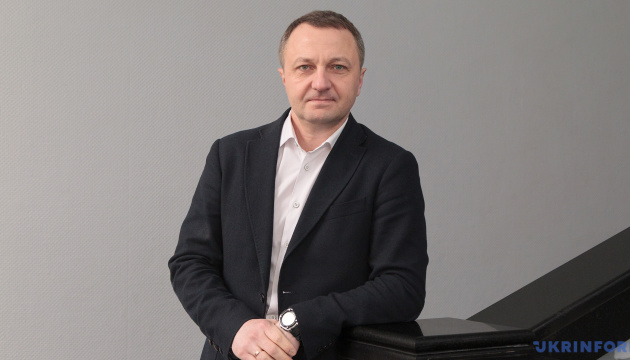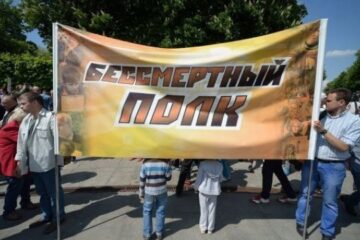Russia’s full-scale war against Ukraine has been ongoing beyond three years. At the same time, profound transformations are getting underway in all spheres of public life, including the language policy. Not only the use of the Ukrainian language in the public environment is evolving into a factor of state-building, but also an effective instrument of bolstering information resilience. Although the norms of language legislation have long been established, their practical enforcement often faces challenges. This is especially true for large cities like Kyiv.
Ukrinform sat down with Taras Kremin, Commissioner for Protecting the Official Language, to discuss the implementation of the Nationally Targeted Cultural Program aimed at developing the Ukrainian language, increasing its presence in all domains of life, as well as the main challenges citizens and authorities are facing in enforcing the language legislation.
– A year has already passed since the adoption of the 2030 Nationally Targeted Cultural Program aimed at developing the Ukrainian language, and increasing its presence in all walks of life. What results have been achieved so far as this program has been under implementation?
– The program was launched into implementation over a year ago; it has met unanimous support from the Government, which set it among its priorities. The program’s implementation is supported by the Law of Ukraine on “Ensuring the Functioning of the Ukrainian Language as the Official Language”, in force since 2019. The program has become a significant contribution to supporting the constitutional status of the Ukrainian language as the official language. Among the initial results achieved, note should be made of a significant expansion of the network of Ukrainian language courses. Whereas in 2019, these were isolated initiatives, then as of today, 380 regional and local language programs are already operating, including 248 programs launched in 2024 alone. In almost every region – in the west, south or east – the most favorable conditions have been set in place to promote the popularity of the Ukrainian language.
[embedded content]
All the communities of Transcarpathia, as well as the Odesa, Mykolaiv, Kherson, Cherkasy regions, parts of the Donetsk, Luhansk, and Kyiv regions are involved in implementing comprehensive language programs. This is an unprecedented result achieved through the years of Ukraine’s independence.
There has been a significant increase in the number of public events of culture and language, among them book presentations, television and radio broadcast programs, music and audio products. The Ukrainian language has seen a surge in popularity recently, most particularly in everyday life: in the service sector, on the Internet, in outdoor advertising, on signs and announcements and, of course, in the educational sector.
Thus, these initial results are indicative that the national program has become an effective instrument in protecting citizens’ linguistic rights, strengthening the status of the Ukrainian language as the official language, as well as in promoting its popularity across the globe.
– You mentioned the increase in the number of language courses. Are these courses provided fee free?
– Yes, all the language courses provided by communities are free of fee charge. Traditionally, these courses are provided at local libraries, educational institutions (schools and universities), offices of public organizations, as well as local government offices.
In addition, online learning forms are being actively developed, including courses for hearing impaired persons. I convey my special thanks to volunteers and local government employees who responded to the needs of citizens and created comfortable environments for learning the Ukrainian language.
The full-scale invasion showed that Ukrainians rejecting the Russian language is not just a linguistic choice, but a deep ideological decision – it is a rejection of the language of the aggressor country. Therefore, language courses have become not only educational, but also a humanitarian, cultural and existential way of resisting the many years of Russification, the colonial past and the artificial narrowing of the spheres of use of the Ukrainian language.
Nowadays, according to numerous research studies, we have a record high number of citizens who speak Ukrainian both in official communication and in everyday life, both in Ukraine and beyond.
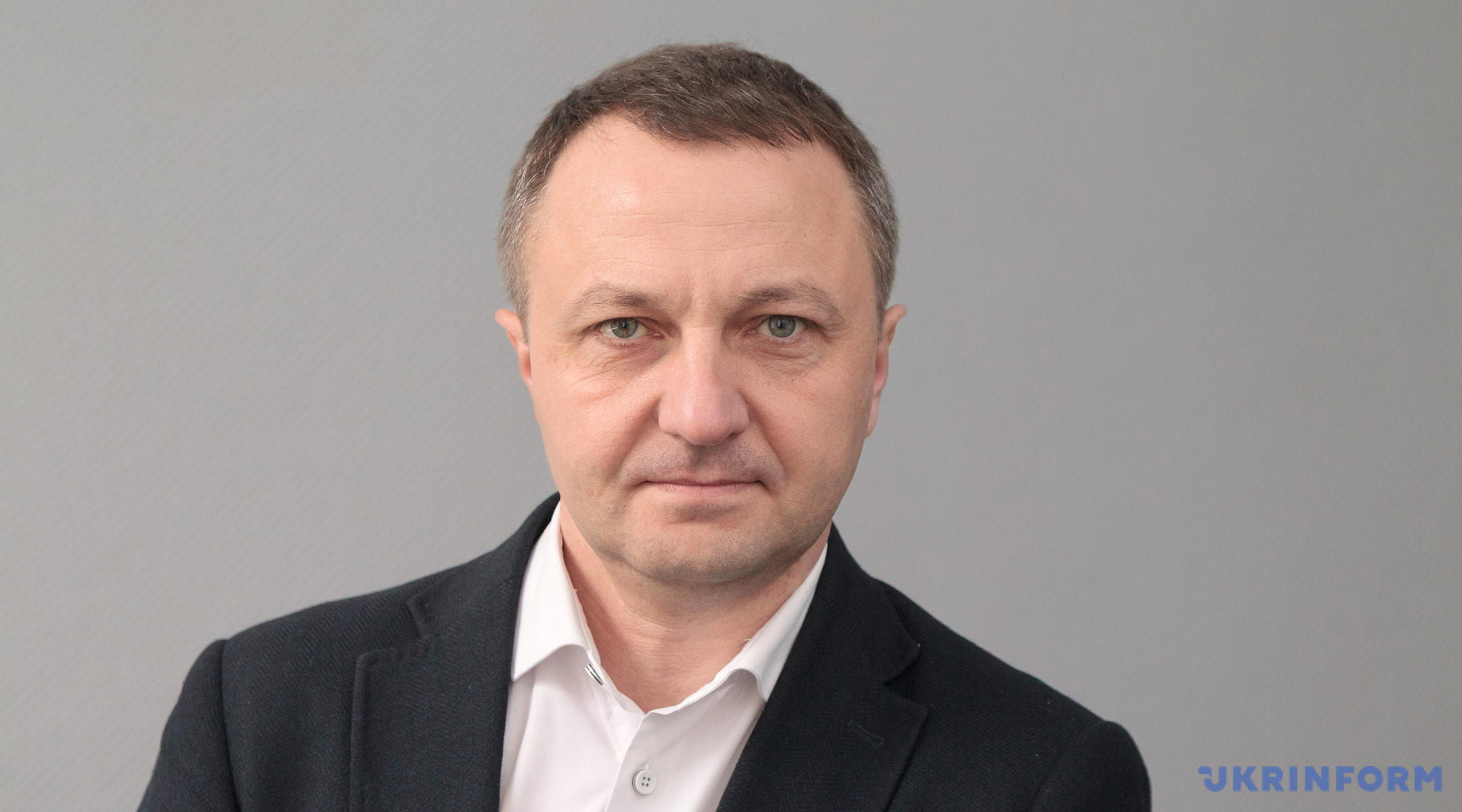
– How many complaints regarding language law violations do you receive each month? Has this number increased?
– We have recently summed up the statistics for the first quarter of 2025. During the first three months of 2025, I, as the Commissioner for the Protection of the Official Language, received 646 complaints from citizens in many different regions of Ukraine. The number of the complaints filed with the Office of the Language Ombudsman grew to some extent compared with the first quarter of 2024, suggesting people are now more focused on the Ukrainian language issue and became less tolerant to violations of their linguistic rights.
Citizens most often complain about the lack of a Ukrainian language version of websites (175 complaints), violations in the sector of outdoor advertising and signage (128), violations in the service sector (104), violations in the education sector (preschool, secondary, extracurricular education, adult education), non-compliance with culture-related provisions of the language legislation (in particular, demonstration of performances in languages other than Ukrainian), media broadcasts that violate the language policy, activities of local self-government bodies (in particular, deputies declining to use the official language during public speeches), violations in the health care sector (27 complaints), in the transport sector (12 complaints), in the sector of book publishing and distribution (6 complaints).
The largest number of violations was recorded in the city of Kyiv – 261 complaints, which is almost a third of the total number. Also, lots of complaints came from the Odesa region (84), Kharkiv region (71), Dnipropetrovsk region (69), Poltava region (12), Mykolaiv region, Chernihiv region (11 complaints each), Zaporizhzhia region (9), and Lviv region (9).
Given that the capital city is ahead in terms of the number of violations of the language legislation, I appointed Ihor Spyrydonov — Russo-Ukrainian war veteran and combatant with extensive experience in law — to represent the Commissioner for Protecting the Official Language in the city of Kyiv. Overall, we currently have in place five representative offices that carry out on-site inspections, conduct explanatory work, and cooperate with law enforcement agencies, local authorities, educational and cultural institutions. Hopefully, the number total of the Commissioner’s representative offices will be able to be doubled during this year to enable us to be more effective in enforcing the language legislation in all the regions across the country.
– Are there those who systematically violate the language legislation? How does the Language Ombudsman’s Office handle this?
– Regrettably enough, there are sectors in which systematic violations of language legislation are recorded. Above all else, this is about the Internet. Despite the fact that a new law on the media is already in force in Ukraine, which was developed with the involvement of the Commissioner’s Secretariat and meets European standards and recommendations of the European Commission, certain challenges remain to be addressed.
More specifically, the activities of social networks are often placed outside effective state regulation. Social networks are often a source of disinformation, hostile propaganda and even the tools for recruiting minors into subversive anti-state activities. Recently, we have witnessed numerous crimes – ranging from spreading hostile lies to planting explosive devices.
Taking this into account, the Commissioner’s Office is working compiling 2024 annual report on the enforcement of the language legislation, which will contain recommendations for the authorities on how to improve the current legislation. We furthermore are going to initiate the changes that will allow us to more effectively protect the Ukrainian infosphere and language in the online domain.
Today, information security is integral to national security. I believe that Ukraine’s information domain must be made more resilient — in the linguistic, legal, and security terms. The priority status of Ukrainian as the official language must be unconditional.
I am hopeful that the recommendations that we provide in annual reports, special reports, and statements will continue to find a response both among the public and among legislators.
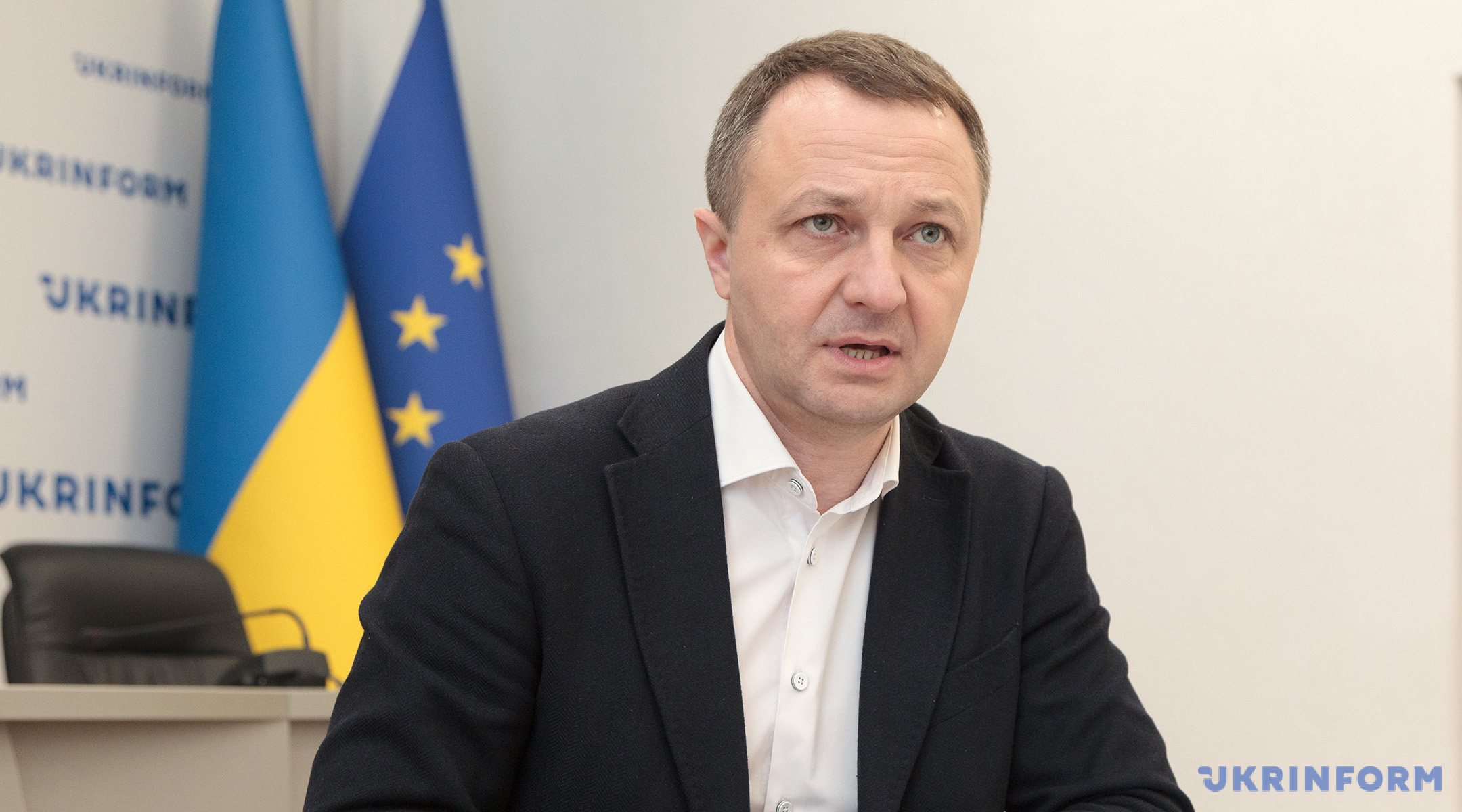
– How effective, in your opinion, is the current mechanism for responding to citizens’ complaints? How many of the complaints filed reach the stage of administrative sanctions?
– I, as the Commissioner for the Protection of the Official Language, assisted by my team, took 716 government supervision measures. This suggests that approximately 25 to 30 percent of all the citizens’ complaints filed recently was followed up to the stage of verification, establishment of facts of violation and demands to get them repaired, and, where appropriate, bringing those responsible to administrative accountability in accordance with the Code of Ukraine on Administrative Offenses.
A total of 574 government supervision measures were completed during 2024, and 236 have already been conducted in 2025 so far.
Since the beginning of 2025, about 150 cases of administrative offenses have been considered, of which 81 were concluded with a warning, meaning a fact of violation was recorded and the one responsible will be facing a fine in the event of repetition. Twenty-seven entities were fined during the first three months of this year, with most of the offences relating to user interfaces, outdoor advertising, and the service sector.
Some cases were closed due to the lack of information about the subject of the violation or the inability to establish its identity – for example, where a signboard is neglected or the owner left out Ukraine.
Most importantly, approximately 80 percent of the violations is eliminated as a result of government supervision measures. This is a high level that confirms the response mechanism is effective and efficient. Particularly positive dynamics are observed where there is close cooperation with local authorities and language learning programs implemented full-on site.
During 2024, inspections were carried out with respect to thousands of facilities ranging from public catering establishments to educational institutions, hospitals, service sector establishments and transport organizations. Permanent working groups are operating to monitor proper enforcement of language legislation.
This systematic work is a feature of a mature society that is ready and willing not only to declare linguistic rights, but also to vigorously uphold and protect them.
— Which of the regions are least involved in the effort to implement the linguistic policy?
— As the full-scale invasion is grinding on, we observe not only strong public resistance to the language of the aggressor country, but also enthusiastic self-organization of citizens aimed at upholding their rights – to education, to language, to judicial fairness, etc.
I, as the Commissioner for Protecting the Official Language, believe it fundamentally important to ensure equal opportunities for all citizens, regardless of their region of residence. That is why we work closely with all regions.
It is noteworthy that the south and east of Ukraine were the regions that were most active in launching local language learning programs after Russian launched its large-scale war of aggression on Ukraine. These regions suffered the most from many years of influence from the Russian-language infrastructure, in particular in the sectors of education, services and in local government activities.
Standing out among the cities where the situation with the linguistic policy enforcement was particularly difficult are million-people cities such as Kyiv, Odesa, and Kharkiv. That being the case, however, thanks to the persistent work of local authorities and with the support from the Commissioner, it was possible not just to develop and launch appropriate programs, but also to implement effective mechanisms to boost up the status of the Ukrainian language. In these cities, favorable conditions have been set up for all those willing to return to the Ukrainian language.
In western Ukraine, in particular, in Transcarpathia Oblast (Beregovo, Mukachevo, Khust), language policy is also being actively pursued. It therefore can be concluded that the Ukrainian language is dynamically strengthening its status and position.
The key to success is in close cooperation and coordination with local authorities, active work with communities and the setting up of a favorable environment for learning and using the Ukrainian language.
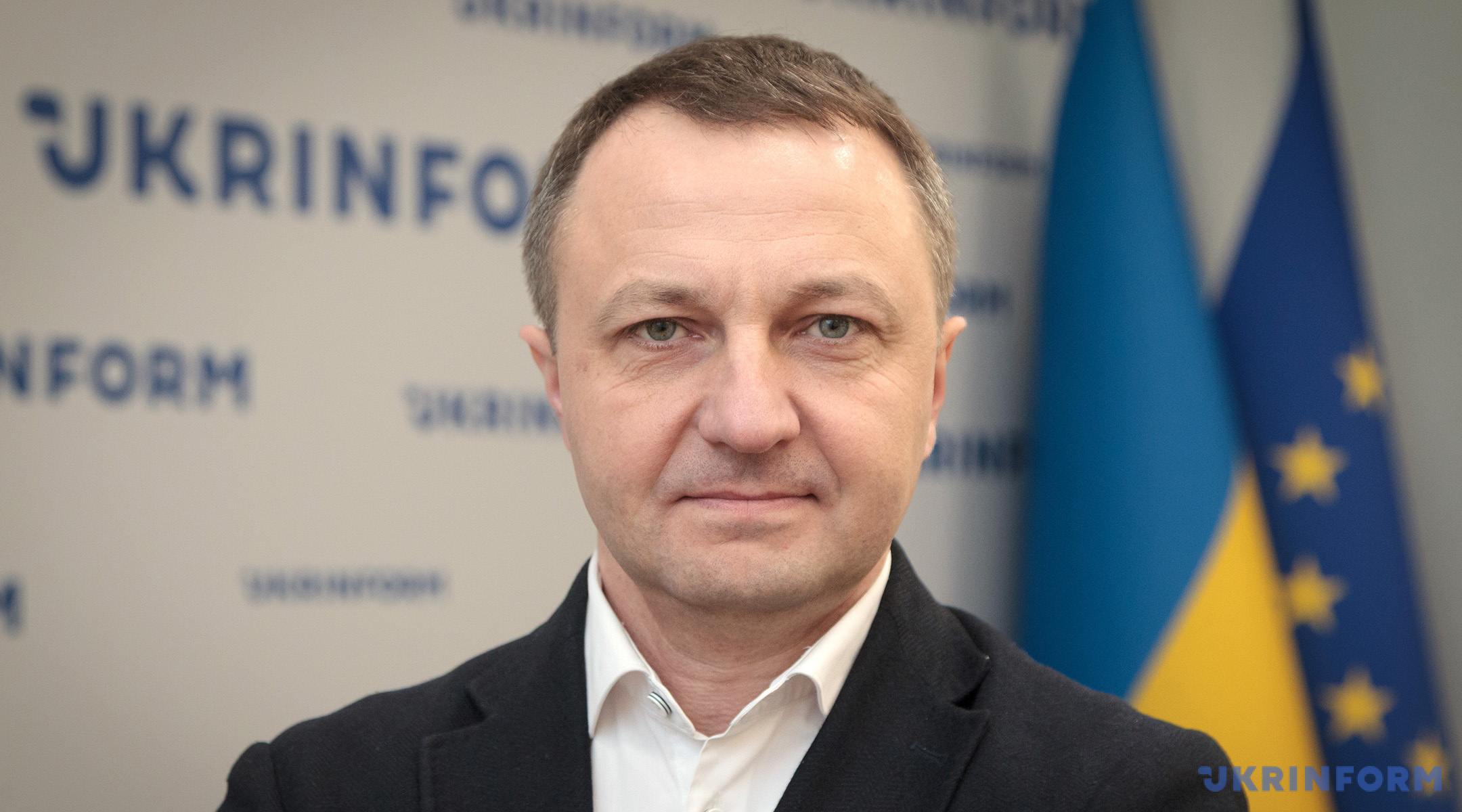
– You once said that many of teachers in Ukraine remain bilingual. In your opinion, what updates should be made to cultural and educational policies to ensure that the Ukrainian language is used not only in education, but also in everyday life?
– In order for the Ukrainian language to become more commonly used in education, it should be more commonly used in home communication. Therefore, my appeal to parents is to be aware of their responsibility for the language education of the future generation of Ukrainians. After all, it is precisely those families where Ukrainian is spoken in home communication that are facing no difficulties speaking the official language during the process of education.
We have proven this together with the State Service for the Quality of Education, having conducted annual research studies. Teachers, parents, and students all admit that bilingualism is common in informal conversations during breaks, in teachers’ rooms, in schoolyards. However, it is not only about the learning process proper, but also about creating a language environment that facilitates better mastering of the Ukrainian language.
This issue is not just linguistic or educational, but a deeply cultural and civilizational one. After all, it is through language that sustainable civil society is built and national identity is advanced. Every schoolchild must understand the significance of the official language for oneself and for the country as a whole.
We are already observing positive changes, but these processes are influenced by external factors – above all else, the information environment. Research studies reveal that it is from social networks that a significant part of citizens learn about the domestic events, about the war, or bombardment attacks. These are often Russian-language social networks that are not officially registered in Ukraine, such as Telegram channels, TikTok, or Instagram, where there is a heavy presence of the Russian language. And this situation affects not only children, but adults as well.
This is what makes the full-fledged use of the Ukrainian language in education into a matter of national security.
A legislation has already been laid before Parliament that would formalize a concept of Ukrainian-speaking environment. The legislation would lay the groundwork that would facilitate the natural dominance of the Ukrainian language in educational institutions – schools, kindergartens, extracurricular activities, universities.
This approach is aimed at personality development — patriotic, cultural, educational and social. And, importantly, the draft legislation applies to schools where teaching is carried out in the language of members of minority groups and other minority ethnic communities, providing students the opportunity to study in their first language while at the same time deeply mastering the Ukrainian language.
This is the path to educating the Ukrainian citizens who are fluent in the official language while simultaneously preserving their national identity, opening to themselves the opportunities for full personal development and social integration.
— Are there public awareness campaigns being conducted to encourage citizens to use the Ukrainian language in everyday life?
– Yes, public awareness and explanatory campaigns are an important component both to the national linguistic program and 380 local linguistic programs. I was among those who had initiated the inclusion of public awareness campaigns in the national and local linguistic programs, and believe that it is precisely informing, explaining and warning that is key to ensuring sustainable compliance with the linguistic legislation and the expansion of the Ukrainian language across all domains of life.
Since my appointment to this position in 2020, I have been systematically informing citizens – through television, radio, social networks, during conferences, regional visits and meetings, discussions with authorities of all levels. We inform people not only about the significance of the official language, but also about specific provisions of the linguistic legislation and the changes that are taking place.
Since 2019, there have been eight waves of individual articles of the linguistic legislation entering into force, addressing the sectors of service and culture, mandating the use of the Ukrainian language in printed and online media, on the Internet, as well as the introduction of exams for official language proficiency.
These transformations are all complemented with social advertising campaigns – conducted in public transport, on the streets, on the Internet, on television. Special focus is placed on direct communication between citizens and employees of the Commissioner’s Office.
We are also intensively working to expand the network of free language courses, and – in a coordinated effort with the Ministry of Culture and Strategic Communications, the Public Broadcaster, TV channels and radio stations – to promote the best practices of language integration in communities.
Through the initiative of First Lady Olena Zelenska, some one hundred Ukrainian-language audio guides have been launched in over five dozen museums throughout the world. And with sponsorship from the Ukrainian presidential foundation for the support of education, science and sports, a global network of Ukrainian studios has been launched, bringing together more than 50 world’s top leading universities, where departments of the Ukrainian language and Ukrainian studies are being launched, libraries are being compiled, and support is being provided to Ukrainians living abroad.
This all is part of a robust information and cultural campaign that not only contributes to the Ukrainian language outreach, but also facilitates the formation of a profound national consciousness in Ukrainians living both in-country and abroad. This kind of diplomacy is important.
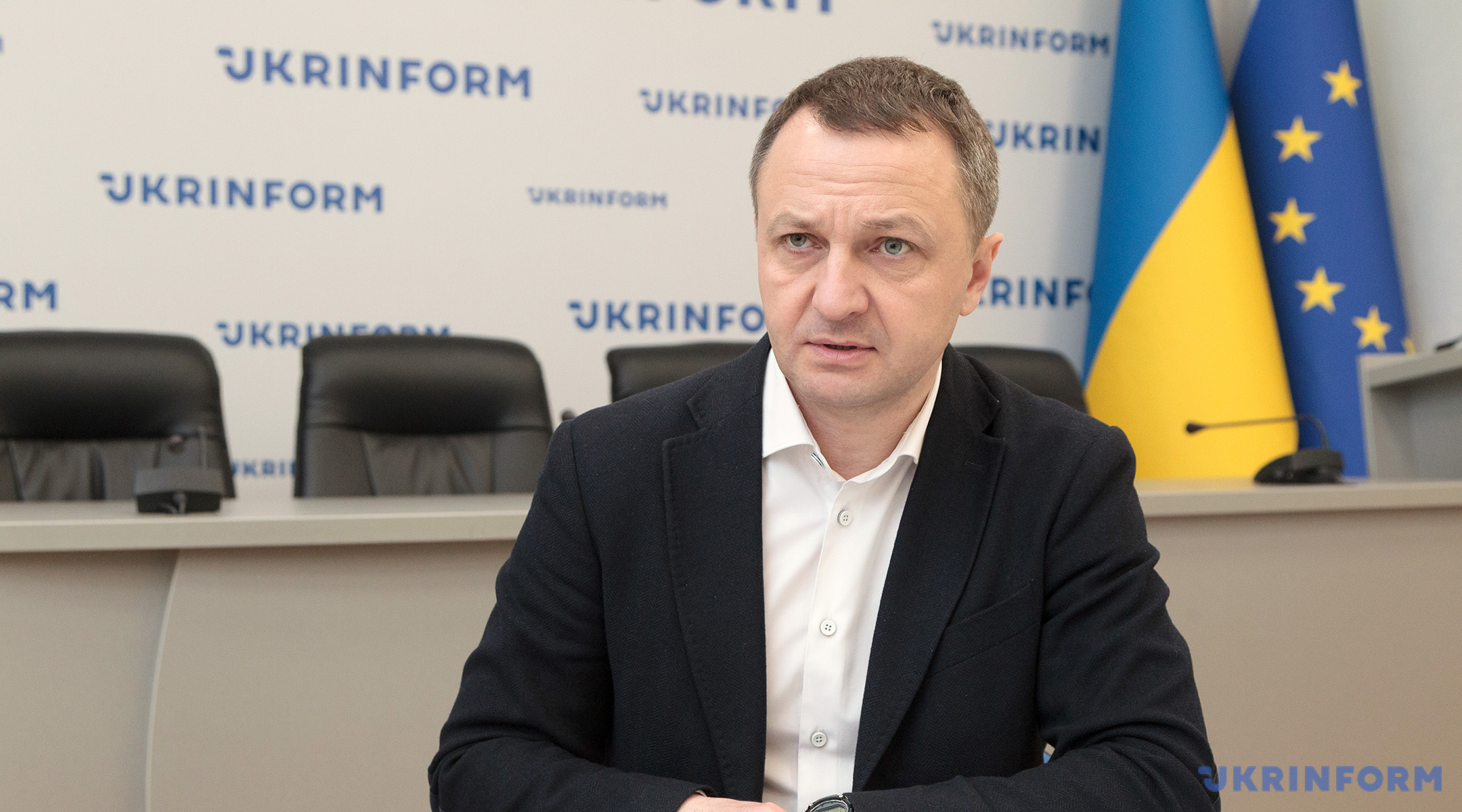
— Have programs in support of the Ukrainian language and language courses been offered to Ukrainian citizens who had been forced to flee abroad?
– With the beginning of the full-scale invasion, I initiated the expansion of the network of Ukrainian Saturday and Sunday schools in places of compact residence of Ukrainian citizens abroad. Simultaneously, other forms of support have been developing: the compilation of Ukrainian bookshelves in libraries, the organization of Ukrainian language courses online, and, on a parallel track, close collaboration was set up with the Ukrainian Ministry of Foreign Affairs, Ministry of Education and Science, as well as the newly organized Ministry for National Unity.
I want to extend my special thanks to the Ukrainian World Congress (UWC) and the UWC World Coordinating Educational Council, who assisted us to achieve a surge in the number of Ukrainian-language schools for forcibly displaced Ukrainians. The network of Ukrainian Saturday and Sunday schools has currently expanded to comprise over two hundred institutions. And they operate not only in Europe, the USA and Canada, but also in Latin America, Africa, and other countries across the world.
This work is extremely important in that it curbs assimilation, ensures continuity of education, and contributes to the formation of national and civic consciousness.
These initiatives are an integral part to the Law of Ukraine on “Ensuring the Functioning of the Ukrainian Language as the Official Language” and are key priority of the national strategy for consolidation of Ukrainian statehood, national memory, and cultural heritage in the face of global challenges.
– How do you generally see the future of the Ukrainian language among the younger generation of Ukrainians who are currently living abroad and in a different language environment?
– The Ukrainian language has a crucial role to play in preserving national identity. Therefore, my mission as Commissioner for Interaction with the Cabinet of Ministers of Ukraine – with support from Prime Minister Denys Shmyhal – is to improve this work and help young Ukrainians strengthen their resilience, affirm their national identity and civic position in a foreign-language environment.
Due to support from partner countries, we have in place separate classes and educational institutions, highly qualified teachers, literature, textbooks and educational curriculums programs. Furthermore, there is in place an updated development strategy for the International Ukrainian School under the auspices of the Ukrainian Ministry of Education and Science.
We also have educational and cultural hubs that continue to be created with the support of our government ministries and Ukrainian communities in different countries worldwide: in Moldova, the Czech Republic, Poland, Denmark, the Netherlands, Germany, Romania, and Hungary. The network of such institutions is extensive.
I therefore believe that these components of our work, along with lots of others, are indicative that we really care about the future of every young Ukrainian. We are thinking about their return, and the research studies we are conducting jointly with the team of the Verkhovna Rada of Ukraine Commissioner for Human Rights Dmytro Lubinets are promising an optimistic future. Where we work together as one team, we can achieve the best results.
– Regarding the toponymy of cities, do you observe positive changes in this issue, and what specific changes do you notice taking place in different regions of Ukraine?
– I, as People’s Deputy of Ukraine of the eighth convocation, was recently recalling the April days of 2015, when I voted in favor of and supported the package of decommunization laws. Since then, we have been able to rename tens of thousands of toponymic objects, including the names of streets and even entire cities. I ardently supported the renaming of Kirovograd to Kropyvnytskyi, as well as Dnipropetrovsk to Dnipro.
But once we had finally said goodbye to the communist past, we needed to break ties with the remnants of the totalitarian regime, as well as with Russian-language names that, unfortunately, were preserved in the names of some cities, streets, parks, and even government-owned enterprises.
That said, I stood at the source and supported the decolonization law, which was adopted by the Verkhovna Rada of Ukraine and signed into law by the President. This gave us the opportunity to rename thousands of names of settlements, as well as the names of district courts. Now we no longer have Komsomolsky, Leninsky, Dzerzhinsky, and more names that had echoes of the Soviet era.
We currently continue to work to ensure that this process expands to include other domains, including particularly the decolonization of the names of individual cities that, regrettably, still retain their old names. An example is the city of Pervomaisk in the Mykolaiv region.
My hope is that the people’s deputies of Ukraine will bring this process to its logical end and will do everything necessary to make this name a thing of the past, and replace it with the old Cossack name of Bohopil. This city, located at the confluence of two rivers – the Southern Bug and the Synyukha — has a beautiful historical and religious name that symbolizes the indomitable Cossack spirit of their countrymates – natives of the steppe Ukraine.Photo
– Can you influence the decisions by local authorities regarding toponymic renaming?
– I am often asked for advice, but I do not exert any direct influence on local authorities with respect to toponymic renaming, except for cultural and intellectual influence.
– In your opinion, what criteria should be the main ones used for choosing street names so that they contribute to the Ukrainian language outreach?
– Toponymic commissions, which include professional historians, renowned ethnographers, scientists, scholars, as well as representatives of public organizations, play an active role in this process. Indeed, local governments are also involved. Therefore, every decision they make, above all else, manifests their responsibility.
We suggested a list of recommended names for renaming streets, avenues, and squares. On this list are prominent Ukrainian linguists, authors, and journalists, including those who died at the Russo-Ukrainian war. And this has produced a great result. Thus, in many cities there are streets renamed after prominent Ukrainians – Ivan Dzyuba, Ivan Drach, Mykhailo Slaboshpytsky, Ivan Chendei, Vitalii Kolodiy, Hlib Babych, Dmytro Kotsiubaylo, Valerii Chybineyev, and Vitalii Bohonko among others.
What’s more, literary prizes, libraries and schools named after these figures are coming to be. This is a huge work, because this work direction is one of the most noticeable in the process of decolonization and consolidation of the Ukrainian toponymic expanse.
As the ancients said, he who owns the expanse owns the country. Therefore, the decolonization of the toponymic expanse, the return of historical names amounts to the return of our history, the strengthening of genetic memory, the discovery of key pages of the struggle, indomitability and unity of the Ukrainian people.
Interviewed by Victoria Shevchenko
Photo: Kyrylo Chubotin
Source: Taras Kremin, Commissioner for Protecting the Official Language

